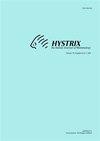Habitat selection of honey badgers: are they at the risk of an ecological trap?
IF 1.8
4区 生物学
Q1 ZOOLOGY
引用次数: 1
Abstract
Human-induced environmental changes have dramatically changed habitats worldwide, decreasing the quantity and quality of habitats for wildlife and putting wild populations at risk. In the current study habitat suitability of the honey badger (Mellivora capensis) across its distribution range in Southern Iran was investigated. We combined presence-only field data with environmental and anthropogenic variables, generating an ensemble model of habitat suitability based on four species distributionmodels. The contribution scores of anthropogenic variables (human footprint index and village density) in the model were noticeable, indicated that honey badgers do not avoid humanmodified areas. The ensemble model further revealed large areas of low quality of natural habitats across the study area. Land use changes may have led honey badgers to settle in poor-quality habitats, where their fitness may be lower than in other available habitats. Therefore, there is a possible risk of an ecological trap due to the lack of protected high-quality habitats. Further research on honey badger fitness, in human-modified areas, is required to evaluate the hypothesis of ecological trap.蜜獾的栖息地选择:它们是否面临生态陷阱的风险?
人类引起的环境变化极大地改变了世界范围内的栖息地,减少了野生动物栖息地的数量和质量,使野生动物种群处于危险之中。本研究调查了蜜獾(Mellivora capensis)在伊朗南部分布范围内的生境适宜性。我们将野外数据与环境和人为变量相结合,建立了一个基于四种物种分布模型的栖息地适宜性综合模型。人为变量(人类足迹指数和村庄密度)在模型中的贡献得分显著,表明蜜獾不会避开人类改造的地区。集合模型进一步揭示了研究区内大面积的低质量自然栖息地。土地利用的变化可能导致蜜獾定居在质量较差的栖息地,在那里它们的适应性可能低于其他可用的栖息地。因此,由于缺乏受保护的优质生境,可能存在生态陷阱的风险。在人类改造地区,需要进一步研究蜜獾的适应性,以评估生态陷阱的假设。
本文章由计算机程序翻译,如有差异,请以英文原文为准。
求助全文
约1分钟内获得全文
求助全文
来源期刊
CiteScore
2.40
自引率
0.00%
发文量
0
审稿时长
21 weeks
期刊介绍:
Hystrix the Italian Journal of Mammalogy accepts papers on original research in basic and applied mammalogy on fossil and living mammals. The Journal is published both in paper and electronic "online first" format. Manuscripts can be published as full papers or short notes, as well as reviews on methods or theoretical issues related to mammals. Commentaries can also be occasionally accepted, under the approval by the Editor in Chief. Investigations of local or regional interest, new data about species distribution and range extensions or confirmatory research can be considered only when they have significant implications. Such studies should preferably be submitted as short notes. Manuscripts bearing only a local interest will not be accepted.
Full papers have no limits in length as well as in figure and table number and are abstracted in English. Authors are encouraged to add supplemental material in form of colour figures, original datasets and/or computer program source code.
Supplemental material and colour figures will appear only on the electronic edition.
Short notes must be about 16000 characters long (including title, author names and affiliations, abstract and references), and do not include supplemental material. They are abstracted in English.
Proceedings of symposia, meetings and/or workshops, and technical reports can be published as special supplements to regular issues, under the approval by the Editor in Chief and the Associate Editors.
There are no page charges.

 求助内容:
求助内容: 应助结果提醒方式:
应助结果提醒方式:


